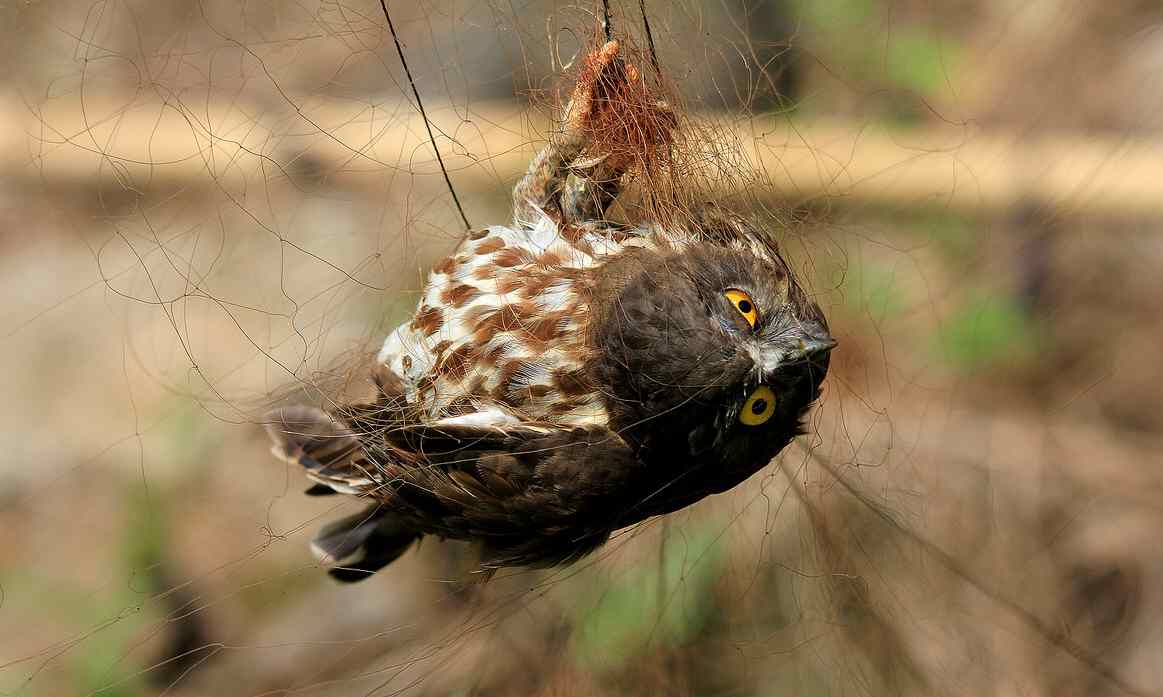


[File photo]
Chinese authorities have issued an emergent notice about tackling the illegal trade and hunting of migratory birds, sending a strong signal of the country’s determination to strike a blow against illegal poaching.
The notice, jointly released in November by seven government sectors including the Ministry of Public Security and State Administration for Industry and Commerce, stipulates that illegal bird trading and hunting be more severely punished by the government.
This notice came on the heels of several recent cases of bird poaching across the nation. In October, 259 swans and mallards were poisoned in Inner Mongolia, while in Tangshan, at least 5,000 birds were strangled by trammel nets. The rampant killing of migratory birds has worried the public as well as many animal welfare organizations, who demanded that the government tackle the problem.
“The strong market demand for birds has led to an uptick in poaching. Most poached birds, such as swans and mallards, are cooked and served in restaurants, while birds of prey may be made into specimens for profit,” said Tian Zhiwei, a Tangshan-based bird protection volunteer, in an interview with Beijing News. Tian added that an illegal and large-profit chain is behind the industry.
According to the Beijing News report, a poached bird can be sold for about 100 RMB in most restaurants, while the price for pet birds and specimens can be much higher. The great profit has lured many criminals to poach birds despite the risks. Meanwhile, China’s current animal protection law is not strong enough to punish poachers, as poaching only constitutes a crime when over 20 wild birds are illegally killed or traded.
“The government should increase criminal penalties applied to poachers, while the implementation of the animal protection law should be conducted jointly by several government sectors. For instance, the transportation department should strengthen supervision of suspicious vehicles, while the commerce department should clamp down on illegal trading in markets and restaurants,” said Zhou Haixiang, director of Shenyang Ligong University’s Ecology and Environmental Research Office.
 Fire brigade in Shanghai holds group wedding
Fire brigade in Shanghai holds group wedding Tourists enjoy ice sculptures in Datan Town, north China
Tourists enjoy ice sculptures in Datan Town, north China Sunset scenery of Dayan Pagoda in Xi'an
Sunset scenery of Dayan Pagoda in Xi'an Tourists have fun at scenic spot in Nanlong Town, NW China
Tourists have fun at scenic spot in Nanlong Town, NW China Harbin attracts tourists by making best use of ice in winter
Harbin attracts tourists by making best use of ice in winter In pics: FIS Alpine Ski Women's World Cup Slalom
In pics: FIS Alpine Ski Women's World Cup Slalom Black-necked cranes rest at reservoir in Lhunzhub County, Lhasa
Black-necked cranes rest at reservoir in Lhunzhub County, Lhasa China's FAST telescope will be available to foreign scientists in April
China's FAST telescope will be available to foreign scientists in April "She power" plays indispensable role in poverty alleviation
"She power" plays indispensable role in poverty alleviation Top 10 world news events of People's Daily in 2020
Top 10 world news events of People's Daily in 2020 Top 10 China news events of People's Daily in 2020
Top 10 China news events of People's Daily in 2020 Top 10 media buzzwords of 2020
Top 10 media buzzwords of 2020 Year-ender:10 major tourism stories of 2020
Year-ender:10 major tourism stories of 2020 No interference in Venezuelan issues
No interference in Venezuelan issues
 Biz prepares for trade spat
Biz prepares for trade spat
 Broadcasting Continent
Broadcasting Continent Australia wins Chinese CEOs as US loses
Australia wins Chinese CEOs as US loses